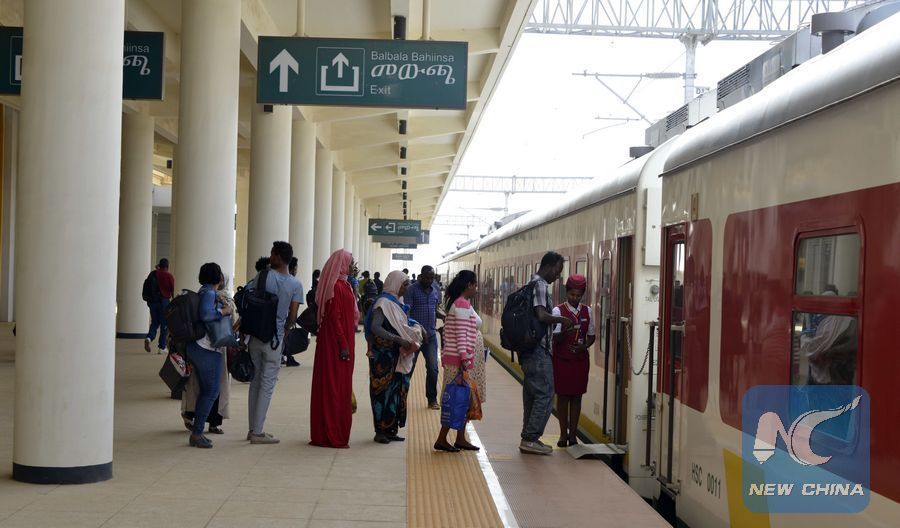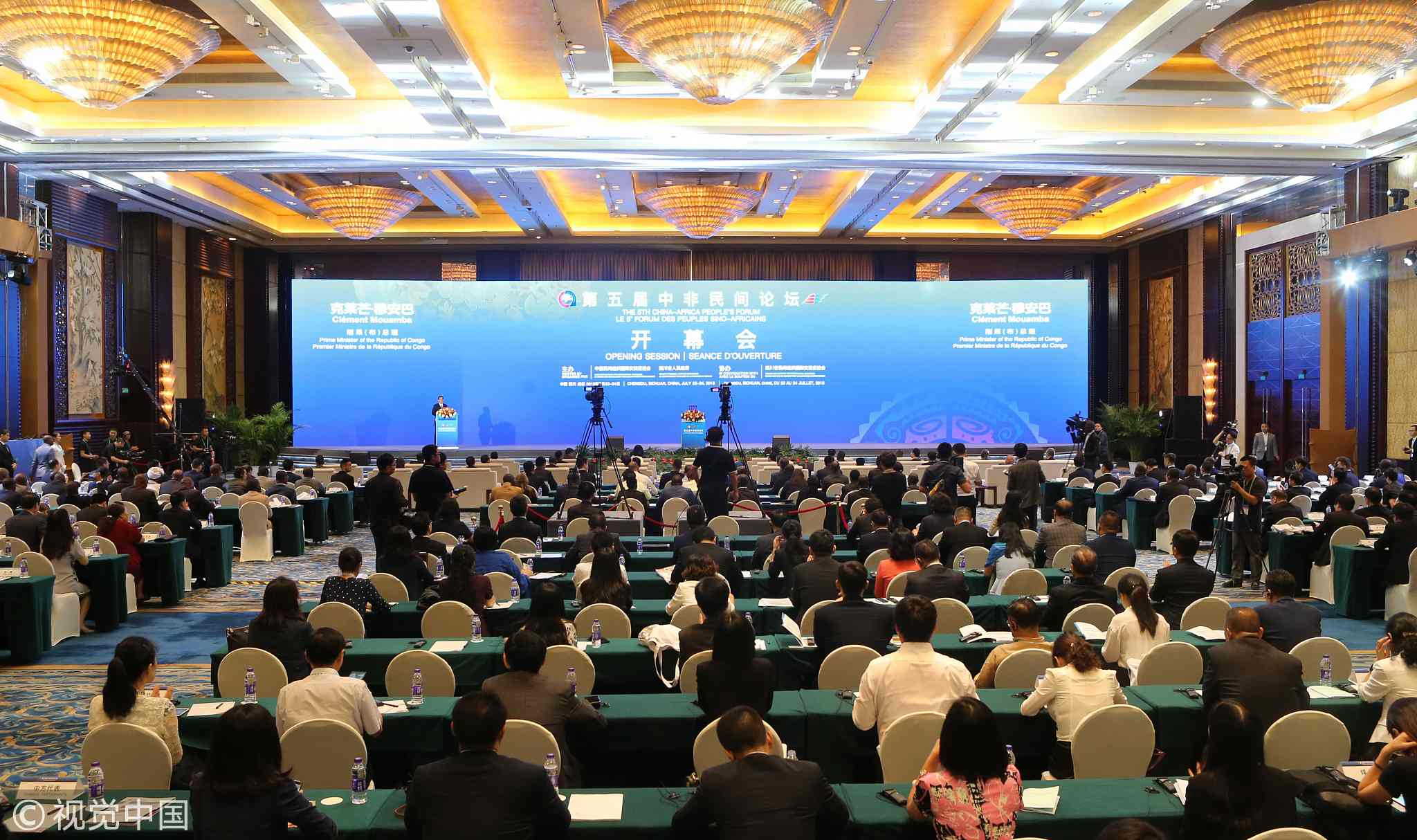
Opinion
09:45, 17-Apr-2019
My story: The BRI propels socio-cultural and economic progress
Oumer Endris

Editor's note: The second Belt and Road Forum for International Cooperation will be held in Beijing at the end of this month. Over the past six years, we have heard many voices – mostly political and economic – about the BRI. We also wanted to hear ordinary people sharing their own experiences. Over 100 people took part in our "CGTN Belt and Road Essay Contest," and we selected the 18 best stories. Here is an essay of one of the third-prize winners. The article reflects the author's opinion, and not necessarily the views of CGTN.
Unfortunately, I was born and raised in a remote part of Djibouti called Galafi village. Galafi is the official border crossing from Djibouti to Ethiopia and administrative district in Djibouti. I am from an Ethiopian father and a Djiboutian mother. Since I have dual citizenship I got the chance to experience the life of both Ethiopian and Djiboutian. All my father's parents and relatives are residing in the highland part of Ethiopia Addis Ababa and low land part of Ethiopia Dire Dawa. The most difficult time for my parents was to travel from my hometown Galafi to the capital of Ethiopia, Addis Ababa, and Dire Dawa as well.
Let me narrate one story from my childhood memory. It was 2009. My father wants to celebrate the Ethiopian New Year in Addis Ababa together with his parents and relatives. When my father told me that, I was strongly eager to meet my relatives who live 704 kilometers away from Galafi.
The promising day approached and we were ready to travel from Galafi to Addis Ababa. My father tried to get a bus which can take us from Galafi to Samara and Adama then Addis Ababa. But it was not simple to get transport access easily. On that time we counted days and nights searching convenient transport access. Only lorries were available but were difficult to travel on. Finally having no option, we traveled in lorries for the far-reaching journey. And it took four days for us to arrive at our destination.
After 10 years everything has changed, the question is how and why it changed? From my memory and personal experience, the Belt and Road Initiative (BRI) plays a great role in changing the situation and connecting far-reaching places.

Passengers queue to board an electric train at Lebu Railway Station in Addis Ababa, capital of Ethiopia, March 25, 2018. /Xinhua Photo
Passengers queue to board an electric train at Lebu Railway Station in Addis Ababa, capital of Ethiopia, March 25, 2018. /Xinhua Photo
Now my parents can easily travel from Galafi to Addis Ababa using the train and can even travel to Dire Dawa within half a day. Before the BRI implementation on Ethiopia and Djibouti, traveling from Galafi to Addis Ababa took four or five days depending on the transportation type. My parents still lived in Galafi, but now I am a journalist and left Addis Ababa. Thanks to it, I can easily travel and enjoy with my childhood friends when vacation comes. As a storyteller, the initiative did benefit me, my parents and the border residents of both Ethiopia and Djibouti.
From my personal experience, the Belt and Road Initiative is part of everyone's life and the pillar of economic progress as economic development couldn't be realized without connectivity. The initiative is all about international connectivity and thus booming socio-cultural and economic progress.
Regarding my country Ethiopia, the Belt and Road Initiative is part of our government five years transformation plan to connect the country at all. Currently, the country is working on a project which connects ''Awash-Weldiya-Mek'ele railway'' as part of the initiative. This project is intended to link the northern and central part of the country. In addition, it will link Addis Ababa-Djibouti railway line to connect the northern with the eastern part of the country.

The 5th China-Africa People's Forum is held in Chengdu, July 24, 2018. /VCG Photo
The 5th China-Africa People's Forum is held in Chengdu, July 24, 2018. /VCG Photo
Commencing train transportation from Addis Ababa to Dire Dawa and Djibouti was a historic day of lowlanders, especially those of us living far from the capital city with poor road infrastructure. But my story didn't end in Addis Ababa-Djibouti railway. It continued to Addis Ababa light railway. After I graduated and became a journalist, I started living in Addis Ababa. There I was living in the ''Hayat district'' which was connected with downtown. Because of that I mostly use the subway to travel from my home to the workplace; it is very convenient for me since I reached to my office without traffic jamming and safely. These are all the result of the Belt and Road Initiative, and I am proud of living in the country which actively participates in the initiative.
Since many benefited gain from the initiative, I hope East Africa connectivity will be realized soon. It is thought that the connectivity of Ethiopia to Sudan, Kenya, Uganda, Somalia and Eritrea will come true with the effort of all countries and the Chinese government. I also hope leaders of these countries are working on the initiative as a long-run plan to connect the region at all.
(The author is a journalist from Addis Ababa, Ethiopia. If you want to contribute and have specific expertise, please contact us at opinions@cgtn.com.)

SITEMAP
Copyright © 2018 CGTN. Beijing ICP prepared NO.16065310-3
Copyright © 2018 CGTN. Beijing ICP prepared NO.16065310-3